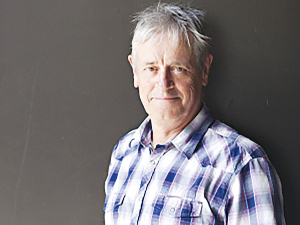Environment Canterbury urges buyers to check wastewater systems on rural properties
Buying or building a rural or semi-rural property? Make sure you know where the wastewater goes, says Environment Canterbury.
 Soil scientist Doug Edmeades says the European approach of implementing environmental policy based on controlling inputs will not work in NZ.
Soil scientist Doug Edmeades says the European approach of implementing environmental policy based on controlling inputs will not work in NZ.
The Government’s decision to cap nitrogen fertiliser inputs at 190 kg N/ha per year is doomed to fail because it ignores basic science, claims soil scientist Doug Edmeades.
These limitations were announced as part of the new freshwater regulations unveiled by Environment Minister David Parker last month.
Edmeades claims if nitrogen fertiliser is capped there are two likely outcomes. “Farmers will simply import more supplementary feed to maintain production, and/or the clover component in the pasture, and the amount of fixed nitrogen, will increase, compensating for any decline in nitrogen fertiliser use.”
He says that when an animal urinates, it applies nitrogen at the rate of about 500 to 1000 kg N/ha.
“This is too much for the pasture and soil to accommodate and hence results in a huge excess of soluble nitrogen in a localised spot of soil, which is then subject to leaching into waterways,” Edmeades explains. “It is for these reasons that animal urine patches are the source of most (about 95%) of the nitrogen getting into waterways.”
He adds that the key to controlling the amount of nitrogen leached is to control the number and frequency of urine patches, especially in the autumn/early winter period.
Edmeades says there are three sources of nitrogen in the animals’ diet and in their urine.
“The largest is the clover nitrogen. Clover is a legume and it converts atmospheric nitrogen into plant protein,” he says. “This ‘fixed N’ feeds the soil with nitrogen, which is taken up by companion grasses.”
Edmeades says the other two sources of nitrogen come onto the farm either as nitrogen fertiliser or the nitrogen in supplementary feeds.
“Either way the total amount of nitrogen in the soil/plant/animal system will remain unchanged. Therefore, the amount of urine N – and hence nitrogen leaching – will remain the same,” he claims.
“Water quality will not be improved. The proposed nitrogen fertiliser cap is technically flawed.”
Edmeades says he thought New Zealand had rejected the European approach of implementing environmental policy based on controlling inputs.
“Our approach was, I thought, to be focused on managing outputs.”
Edmeades says the difference between the two concepts is important because the goal is to change on-farm behaviour to improve water quality.
“The input controllers say cap fertiliser nitrogen. If that does not work then we have to control something else – like capping stock numbers, getting rid of all fertilisers, or reducing farming activity,” he explains.
“The output control approach sets limits on the concentration of nitrogen in waterways. With the limit set, the farmer can do whatever he likes on the farm providing the freshwater N goal is achieved.”
Edmeades believes this approach encourages inventiveness and entrepreneurship and allows the farmer to think of other options.
“Like putting the animals in a herd home, especially during the rainy season, so that the urine can be collected and returned to the soil at an appropriate agronomic rate,” he says.
“Or, tile drain the flats so that the nitrogen moving down through the soil is intercepted, captured and returned to the soil.”
Edmeades claims the difference between the input and output method is between progress or extreme environmentalism.
Coming in at a year-end total at 3088 units, a rise of around 10% over the 2806 total for 2024, the signs are that the New Zealand farm machinery industry is turning the corner after a difficult couple of years.
New Zealand's animal health industry has a new tool addressing a long-standing sustainability issue.
The Government has announced that ACC will be a sponsor of this year's FMG Young Farmer of the Year competition.
As veterinary student numbers grow to help address New Zealand's national workforce shortge, Massey University's School of Veterinary Science is inviting more veterinary practices to partner in training the next generation of vets.
South Island dairy farmers will soon be able to supply organic milk to Fonterra.
Norwood has announced the opening of a new Tasman dealership at Richmond near Nelson next month.